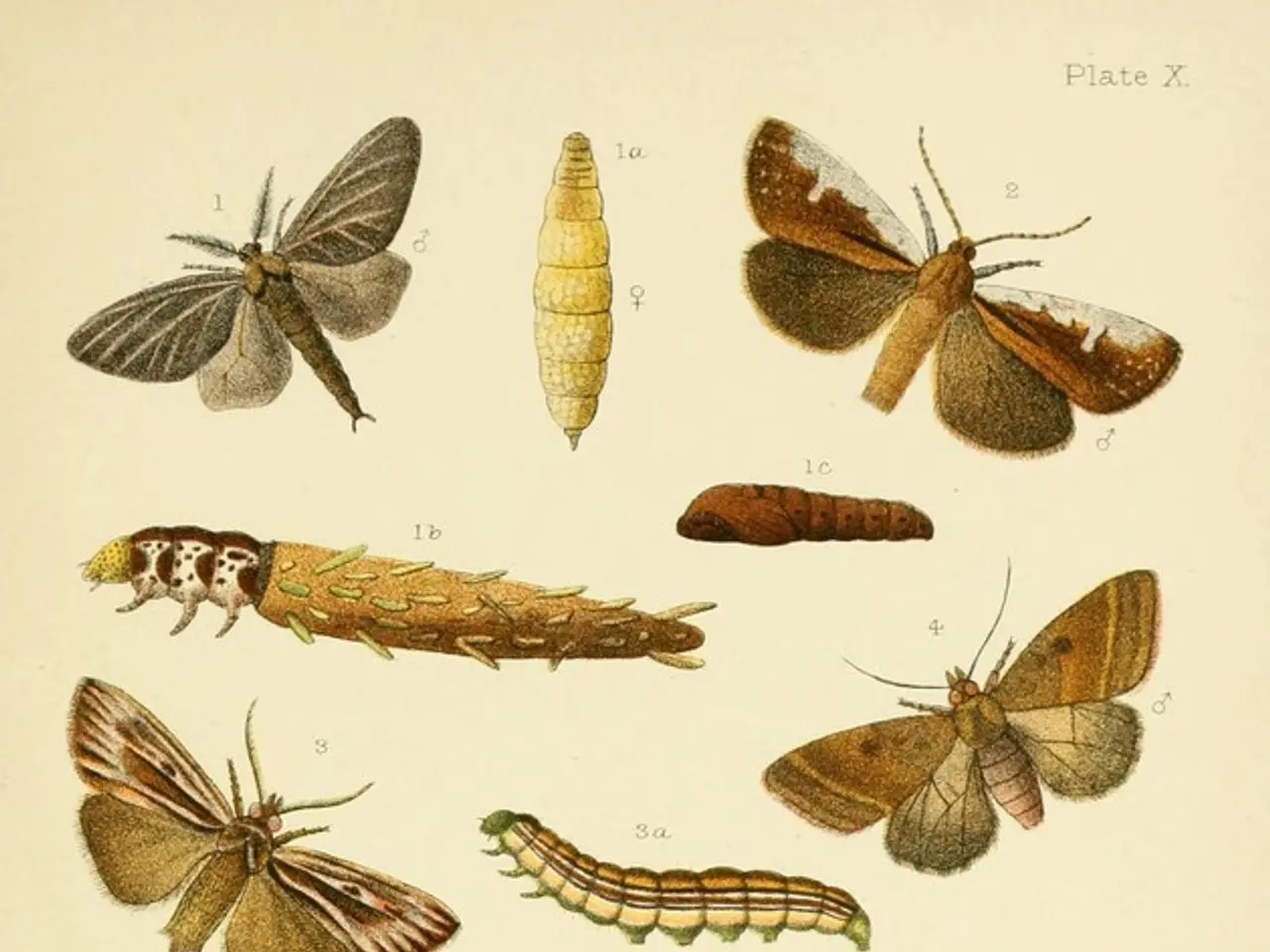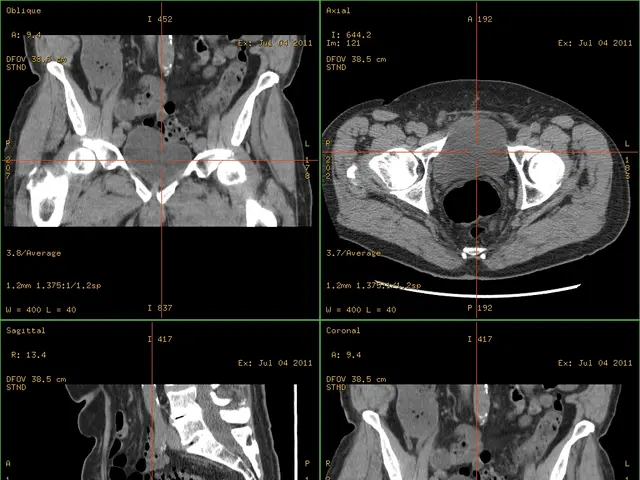Düsseldorf marks the commencement of the annual oak procession spinners celebration
In the city of Düsseldorf, a common yet potentially harmful pest, the oak processionary caterpillar, is making its presence known. The city authorities are urging caution due to the potential health risks posed by these caterpillars.
These small creatures, often mistaken for harmless bagworms, are found almost exclusively on oak trees. To report affected trees in the city area, residents can email the garden department at [email protected].
In an effort to control the infestation, approximately 750 oak trees will be sprayed with a natural biozide derived from neem seeds in the coming days. This treatment prevents the formation of the caterpillars' dangerous burning hairs.
However, it's important to note that the affected areas will be cordoned off during treatment. Trees selected for biozide treatment are those heavily infested in previous years and located near high-traffic areas like playgrounds, schoolyards, kindergartens, main paths on cemeteries, and heavily frequented streets.
On private property, the responsibility of removing affected trees falls to the owner.
When it comes to first aid, contact with the hairs of oak processionary caterpillars requires immediate attention. Do not rub or scratch the affected skin, as the hairs are barbed and can embed deeper or spread further. Instead, remove hairs gently by using adhesive tape to lift them off the skin. Wash the affected area carefully with soap and water to help remove residual hairs.
Avoid direct contact with eyes, mouth, and the respiratory tract, as the hairs can cause irritation beyond the skin. For symptomatic skin care, apply topical treatments that soothe itching and irritation, such as anti-itch creams or products formulated for processionary caterpillar hair irritation.
More severe reactions involving eyes, throat, or breathing require medical attention due to the hairs’ toxic protein thaumetopoein. In such cases, seek immediate medical help.
Once the biozide has dried, the area is fully usable again without further cordoning off or waiting times. Additionally, traps consisting of bags with a natural attractant from the common oak will be used on 100 trees in Düsseldorf's city area.
Stay vigilant and follow these guidelines to ensure a safe and healthy environment for all.
Mental health is crucial during this period, as concerns about the oak processionary caterpillar infestation in Düsseldorf may cause stress and anxiety. To manage this, focus on health-and-wellness practices such as deep breathing exercises, regular exercise, and maintaining a positive outlook.
In the long run, understanding and addressing environmental-science issues like the oak processionary caterpillar infestation helps promote a healthier and more balanced ecosystem in our cities, benefiting both humans and the environment.




